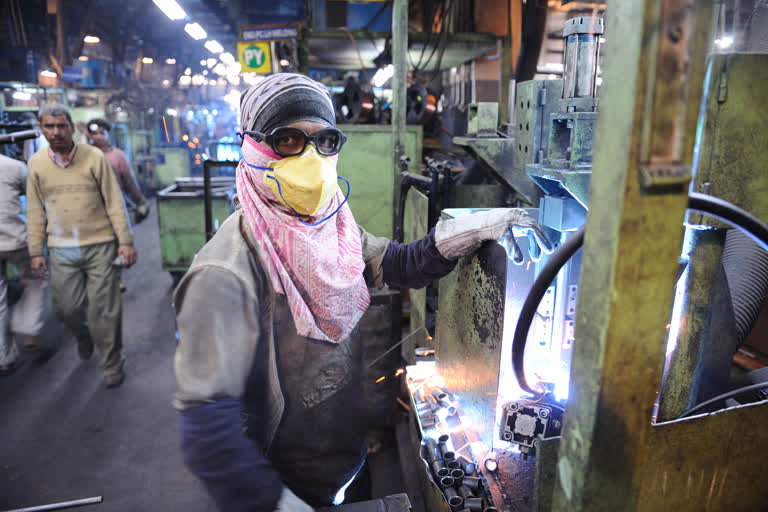New Delhi: SME bodies have urged the banks, particularly the branch level officials, to immediately implement the RBI’s decision to continue with restructuring of loans given to the SMEs saying any delay on the bank’s part will make the continuation of some SMEs in the business difficult.
Reserve Bank Governor Shaktikanta Das on Thursday announced that the existing one time loan restructuring framework for the SME sector will be operational till March next year.
Given the difficulties faced by the small and medium enterprises, the Reserve Bank has permitted banks to restructure those loans that were standard accounts as on March 1, ahead of a nationwide lockdown that was imposed from March 25 to slowdown the spread of Coronavirus in the country.
“The RBI's permission for one-time restructuring is good but bank managers at the branch level don’t cooperate with SMEs. It should be stopped and restructuring should be done in a time bound manner,” said Chandrakant Salunkhe, Founder of SME Chamber of India.
“The RBI should direct the banks that a struggling account should be restructured on priority and on time,” Salunkhe told ETV Bharat.
Salunkhe says according to a survey conducted by SME Chamber of India in June this year, nearly half of 10,000 participating SMEs expressed doubts over their continuation in the business if timely relief was not extended to them.
According to the survey, nearly two-third SMEs said they needed more funds while 45% of them expressed the need to restructure the loans given to them.
SME sector crucial for India’s economy
According to some estimates, India’s micro, small and medium enterprises (MSME sector), account for 45% of the total industrial output and nearly 40% of the country’s export. Nearly 100 million people are employed in the SME sector which is the largest employment outside agriculture.
Given the crucial role played by the SMEs in the country’s economic growth and problems faced by during the Covid-19 lockdown, Modi government has announced a Rs 3 lakh crore collateral free loan scheme for SMEs in May this year.
Read more:Kamath to head RBI panel; Diwakar, Manoharan, IBA CEO on board
According to the latest official data for the 100% Emergency Credit Line Guarantee Scheme (ECLGS), as on June 26, the scheduled commercial banks have sanctioned loans worth Rs 1 lakh crore and disbursed loans worth Rs 45,000 crore under the collateral free loan scheme.
Despite the collateral free loan, SMEs have been pressing for restructuring of the existing loans to make them viable.
What is restructuring of a loan?
The restructuring of loan will allow banks to change the tenure of the loan, installment to be paid by the business every month and other terms and conditions of an existing loan.
It also has provisions to convert a part of the loan into working capital loan while the rest of the loan amount will be converted into EMIs to be paid over an extended period beyond the existing tenure.
Animesh Saxena, President of Federation of Indian Micro and Small & Medium Enterprises (FISME), says restructuring of loan was much needed for the sector as it has been struggling during the pandemic.
“One time restructuring is good opportunity as some loan accounts have already turned into NPAs. It will provide an opportunity to sort it out,” Animesh Saxena told ETV Bharat.
A loan account turns into non-performing asset or a bad loan if the borrower is not able to repay the loan for a continuous period of 90 days, for the loans extended by the non-banking finance companies, this limit could be 120 days.
Animesh Saxena also underscores the problems faced by the small businesses at the branch level as any scheme is implemented through them.
“Ground level implementation remains an issue but the last 3-4 months were challenging for banks also as there was issue of manpower,” he said.
“Hopefully now it will be expedited,” Animesh Saxena expressed his optimism following the announcement by the RBI Governor Shaktikanta Das.
(Article by Krishnanand Tripathi)



